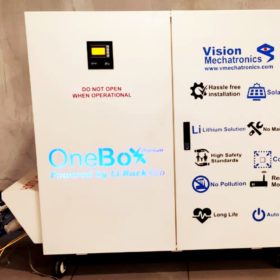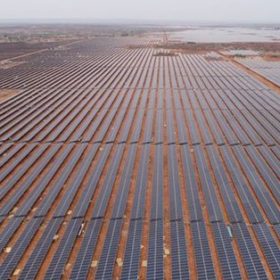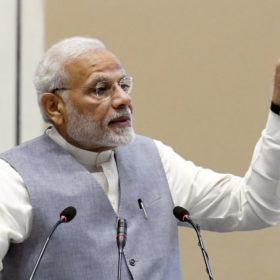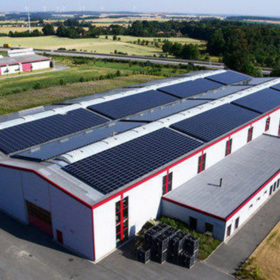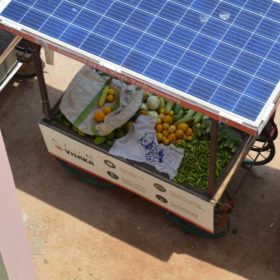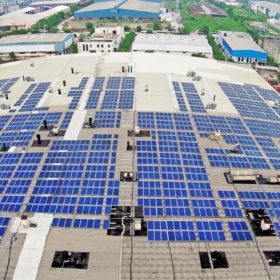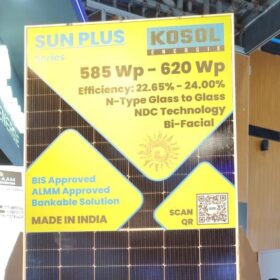A plug-and-play solar-powered battery back-up solution for the home
The OneBox, from Indian manufacturer Vision Mechatronics, consists of a lithium battery, hybrid inverter and solar charge controller to give a hassle-free solution for electricity back-up during power outages. Solar rooftop owners are offered a grid feed feature to maximize net metering income from any excess power generated.
Uttar Pradesh will become the hub of solar energy, says State’s energy minister
15 GW of utility scale and 8.5 GW grid-connected rooftop solar by year 2030 is the new target set for the state which is currently chasing year 2022 target of 6.4 GW and 4.3 GW, respectively.
Gujarat to provide Rs 912 crore subsidy for rooftop solar this fiscal
The state budget for 2020-21 has also allocated Rs 125 crore under Pradhan Mantri KUSUM Yojana to solarize 18,500 grid-connected pumps and for standalone offgrid solar power agriculture pumps.
Large scale storage still some way off
Consultancy Bridge to India has looked into its crystal ball to predict India will add 10 GW of solar capacity this year and the same next year before deployment slows to 7 GW per year in 2022 and 2023, dogged by hurdles such as an inexplicable ongoing demand for new coal-fired power plants.
Azure Power posts Q3 loss but continues to expand solar portfolio
The New Delhi-based developer posted a Rs136 crore loss from October to the end of December but has managed to shift current liabilities into the long grass as it aims to continue on an expansionist trail, backed by the Canadian pension fund which holds almost half its shares.
SunAlpha Energy to solarise Flair Group’s manufacturing plant in Daman
The 150 KW rooftop solar plant in Daman will cover an area of 1858 square metre (20,000 square feet) and generate 210,000 units of electricity per annum.
Renewable energy: 7,592 MW commissioned in first nine months of the fiscal year
Capacity additions for the current fiscal year are set to exceed the previous accounting period’s 8,532 MW. With Rs405 billion invested in clean energy in the last fiscal year, spending in the first nine months of 2019-20 has been estimated at Rs367 billion.
Visaka’s solar roof receives IEC CB 2016 and UL 61730 certification
Compliance to revised IEC standards allows the ATUM roof with integrated solar panels to chart markets in over 50 countries.
Maheswari Mining & Energy secures the largest slice of 97.5 MW rooftop solar
The developer won 9 MW under RESCO mode. Other major winners include SunSource with 8 MW, Ampsolar and Varp (5 MW each), and Hero Future and HFM Solar Power (4.075 MW each).
India’s first “fully solar powered” railway section
South Central Railway’s Nandyal-Yerraguntla section in Guntakal Division has been declared as the first solar section in India that has all of its stations in one stretch powered by solar panels.
